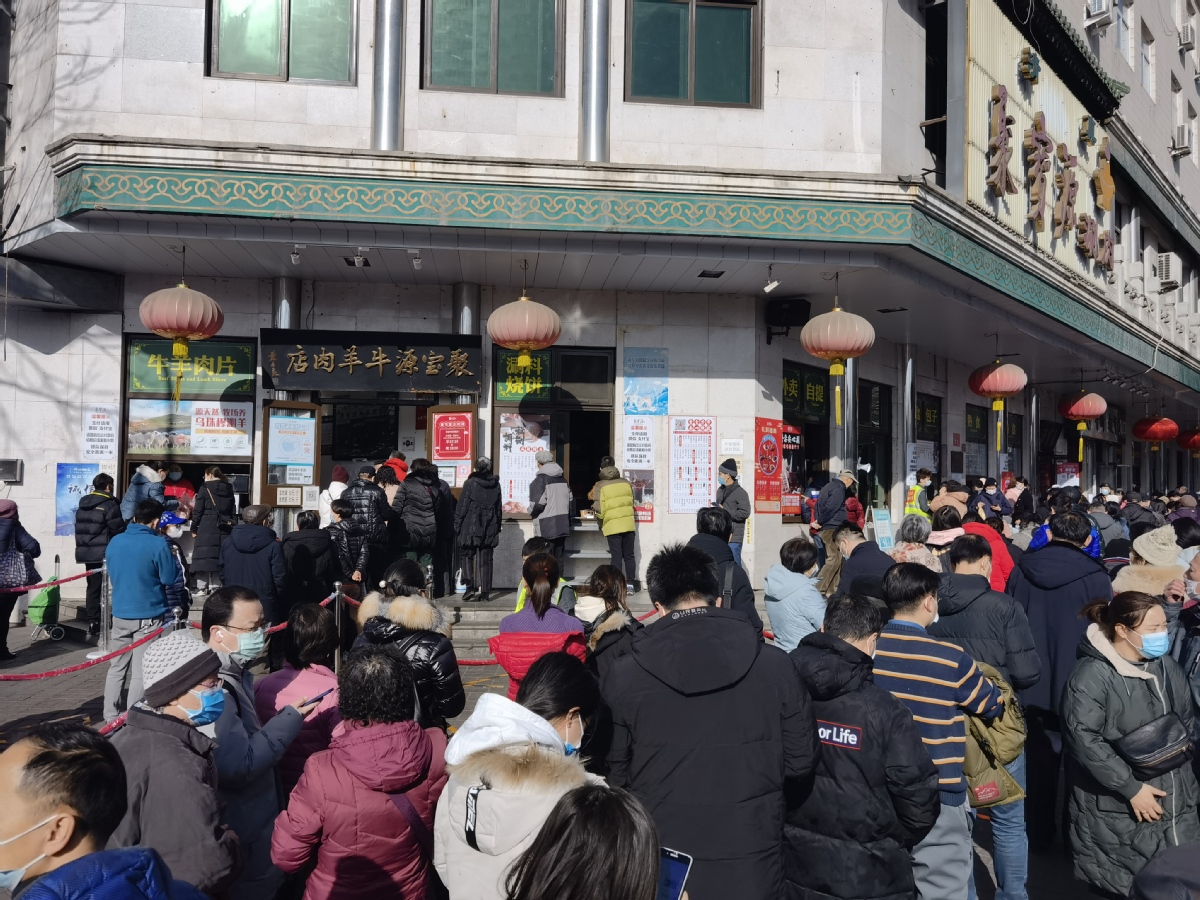Muslim area offers Spring Festival delights


Tourists visit Ox Street to get a glimpse of the old city and to taste authentic Beijing snacks and Muslim food.
One of its best-known restaurants is Jubaoyuan, which does a roaring trade in hotpot and snacks. Customers are offered seats outside the two-floor eatery to wait for tables, and it remains open until 10 pm to cater to a constant stream of diners.
Founded in 1937, the Jubaoyuan brand started by selling fresh beef and mutton. In 1993, Ma Gang, a member of the Hui ethnic group, founded eponymous restaurants, which 10 years later became known for their signature product-hotpot.
Ma, who lives in Ox Street, said: "We go to the slaughterhouse daily to buy fresh meat to sell the same day. Customers come to the restaurants to taste not only fresh mutton and beef, but also for our hotspot sauce, grilled mutton kebabs and sesame seed baked cakes."
There are now nine Jubaoyuan branch restaurants in different areas of Beijing, and Ma said many of their tables have been booked for the Spring Festival holiday.
In addition to its restaurants and food stores, the area is known for the Ox Street Mosque, built in 996 during the Liao Dynasty (916-1125), and for its hutongs (alleyways) and siheyuan (courtyards).
A supermarket selling halal food, where customers can buy a range of snacks from well-known brands, is located next to the Jubaoyuan restaurant.
Wang Yaxiang, who sells snacks at the supermarket, said, "Snack boxes are among the favorite holiday gifts for the older generation in Beijing, and many people are still buying them."
These square paper boxes contain a range of sweet delights, such as cream cake, hawthorn cake and jujube paste cake.
Wang said: "I noticed some young customers using their phones to record the process of packing the snack boxes. They shared the footage online. For the younger generation, this is a new and interesting experience."
Due to the coronavirus outbreak last year, An Fengqin, who is in her 60s and was born and raised in Ox Street, was unable to have Lunar New Year's Eve dinner with her parents-who still live in the area. Instead, the family members greeted one another online.
This year, she plans to visit the street during the Spring Festival holiday to take care of her parents, who are in their 90s.
"Last year, the Spring Festival holiday was full of sadness because of the bad news about the pandemic. We didn't know what to do other than stay home with our families. This year, we want to start over again to have a happy holiday. Although the pandemic is ongoing, we know how to protect ourselves and our families," An said.
After getting married in 1981, An moved to Jinsong, Chaoyang district, with her husband, where they still live.
























